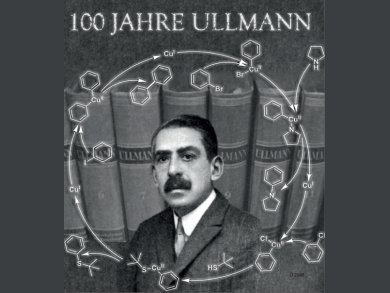In the December issue of Chemie Ingenieur Technik specialists from around the world who are committed to Ullmann’s Encyclopedia of Industrial Chemistry pay tribute to the 100th anniversary of this famous reference work. In their review articles, they focus on topics ranging from biochemical engineering, technical heterogeneous catalysis, stirring technology and membrane reactors to lithiated hydrides in energy storage and conversion, environmental microbiology and renewable, carbon-based raw materials for the production of chemicals in fuels.
Roland Ulber and colleagues, for example, start with a journey through the history of biotechnology and bioprocess engineering from the first Ullmann articles up to the current state of research. They introduce the innovative potential of biotechnology by looking at current refinery concepts, biofilm and microreactor technology, and synthetic biology.
Kurt Wagemann, as another example, discusses how the production of basic chemicals on basis of renewable resources is an alternative to petrochemical based production processes. For selected chemicals he compares existing production processes based on petrochemicals with sustainable alternatives. He concludes that some common assertions are untrue. These include: “If the price of oil rises, bio-based products have better chances of success.”, “Cheap shale gas is of significant competitive advantage for the US chemical industry.”, and “Consumers are willing to pay a premium for bio-based products.”.
Alvin Nienow discusses single- and multiphase stirred tank reactors and their development over the last century. Since stirred-tank reactors are used in many areas of the process industry, the understanding of the underlying physical interactions is of great importance. An important tool, especially in terms of scaling up from laboratory scale to production plant, is computational fluid dynamics.
- Special Issue: 100 Jahre Ullmanns Enzyklopädie der Technischen Chemie
Chem. Ing. Tech. 2014, 12. - Herstellung von Grundchemikalien auf Basis nachwachsender Rohstoffe als Alternative zur Petrochemie?,
Kurt Wagemann,
Chem. Ing. Tech. 2014, 12.
DOI: 10.1002/cite.201400108 - Biotechnologie und Bioverfahrenstechnik – Vom ersten Ullmanns Artikel bis hin zu aktuellen Forschungsthemen,
Huschyar Al-Kaidy, Anna Duwe, Manuel Huster, Kai Muffler, Christin Schlegel, Tim Sieker, Ralf Stadtmüller, Nils Tippkötter, Roland Ulber,
Chem. Ing. Tech. 2014, 12.
DOI: 10.1002/cite.201400083 - Stirring and Stirred-Tank Reactors,
Alvin W. Nienow,
Chem. Ing. Technol. 2014.
DOI: 10.1002/cite.201400087



